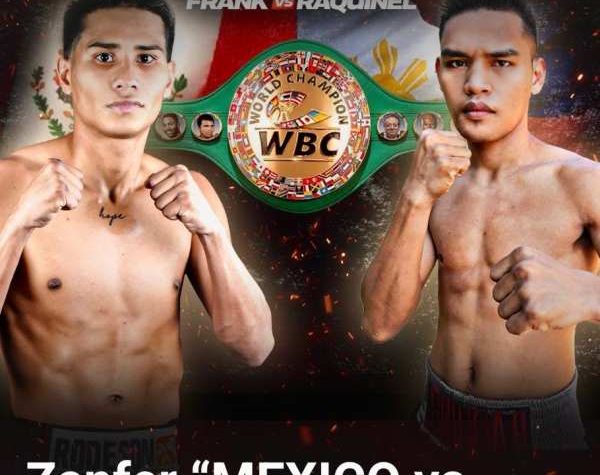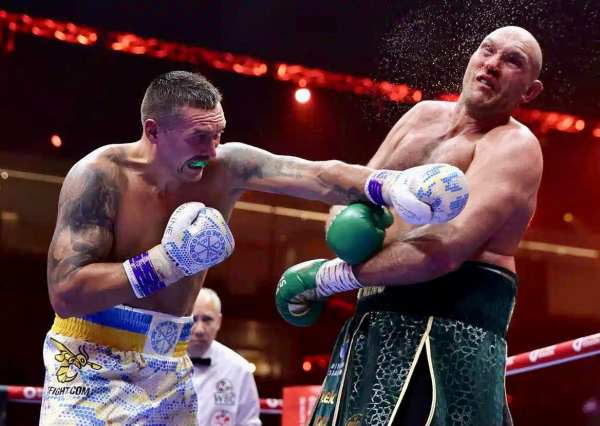
MMAfighting.com
When she first began her transition from Brazilian jiu-jitsu royalty into the great unknown that was MMA, Mackenzie Dern set a goal of debuting in the UFC by the end of 2017.
Turns out she was only a few months off from being a soothsayer.
After an unbeaten run on the regional scene, Dern, now 5-0 and only 24 years old, will make her Octagon debut against Ashley Yoder on March 3 at UFC 222. The moment is one long anticipated for the decorated black belt, who was the No. 1-ranked female jiu-jitsu player in the world when she announced her transition to the pugilistic arts. But for Dern, a blue-chip combat sports athlete who has been training in a gi since the age of 3, the countdown to UFC 222 feels like it has been a lifetime in the making.
“I’m excited,” Dern told MMA Fighting. “It’s not like ‘finally,’ but at the same time, I was ready to take the next step.
“Of course, I still have so much (room) to grow in the UFC, but I was ready to be growing in the UFC, not outside the UFC. I’m excited that finally I can make that transition.”
Unlike most UFC debutantes, Dern’s story has already been well told. The daughter of famed Brazilian jiu-jitsu master Wellington “Megaton” Dias, Dern was awarded her black belt before she could legally buy a beer. By the time she turned 20, she was a legitimate contender on the world’s stage, raking in jiu-jitsu tournament gold while dispelling any notion that she was little more than the professor’s daughter. Her grappling run crested in 2015 when, over the course of an unprecedented year, she captured nearly every major jiu-jitsu title across the globe, earning her No. 1 ranking and even besting heavyweight destroyer Gabi Garcia in an openweight contest.
Thus far, Dern has been no less successful inside the cage. She has dominated all five of her opponents, even scoring a gnarly ‘Submission of the Year’ candidate over current UFC flyweight contender Montana De La Rosa in her second professional fight.
In her final appearance before receiving the call-up to the UFC, Dern showcased her ongoing evolution as a fighter, outclassing one-time Invicta title challenger Kaline Medeiros in the standup game before submitting Medeiros with a third-round armbar at Invicta FC 26. Dern also successfully made the strawweight limit for the first time since her pro debut, helping to allay fears about her ability to make the 115-pound weight class.
“Invicta was a great experience,” Dern said.
“I think it was good for me with the weight cut, to show I can do 115. I just needed to learn and experience (a bigger stage like) this. I never had amateur fights or anything like that, so it was good for me to feel that, and to see that standing up — I stayed almost three rounds standing up, basically, with Kaline Medeiros, who fought Angela Hill before me. So it was good. It was a good confidence (builder). It was good to show, like, OK, you’re on the right path. And I think it was good for the public to see me, like, ‘OK, she’s taking it serious.’ I think when they see, ‘Oh, you don’t make weight,’ they think you didn’t try, you didn’t [approach this] professionally.
“I made mistakes — people make mistakes — but I never didn’t care. It was never like, ‘Oh, I’m not going to try.’ I always went all the way (through with my weight cut) until I couldn’t walk anymore. I always tried my best. So it was good for people to see, no, I’m trying to take this serious. It just takes some time.”
While the scale has been her toughest opponent throughout the early stages of her MMA career, Dern is encouraged by the progress she made for her Invicta FC debut.
Dern attributes much of that success to a dramatic shift in her approach to cutting weight. Rather than revolving her diet around foods and practices that would result in heavy water loading — as is customary in MMA — Dern returned to a cleaner, lighter lifestyle that worked for her in jiu-jitsu, a sport without the 24-hour recovery period between weigh-ins and competition. Nutritionists early in her MMA run would have her eating often and in large amounts, but Dern scaled everything back to a level of intake she was comfortable ahead of Invicta FC 26, and the strategy resulted in the easiest cut of her fight career.
“When I first went to MMA, I thought that I needed to be like an MMA fighter and try to do the diet like they do. They do a lot of dehydration, they lose a lot of water weight, and all of these things,” Dern said. “But I’ve competed in jiu-jitsu for what, 18 years, 19 years, so my body is used to that. I’m used to competing and training that way, the way that I would diet for jiu-jitsu, so my last fight I said, ‘No, I’m going to do a diet that I did for jiu-jitsu,’ and that’s exactly what I did.
“I didn’t do any sauna, no bathtub, nothing, not one. I did cardio in the camp, I did like swimming, riding my bike to the academy. I was doing a lot of burning calories and the diet was like I did for jiu-jitsu, but I didn’t cut any water weight in the sauna or anything. I woke on the morning of weigh-ins and was on weight. I was smiling. I was able to brush my hair. Never (before) was I able to do that. Of course, I don’t think I gained as much the next day — like when you do water, you gain back a lot, you feel a little bulky. I didn’t gain so much, but like I said, I was so used to doing sparring and training for three weeks at a lesser weight, closer to my weight, so I felt good. I felt fast. I felt like I didn’t get tired between rounds. I felt so good.”
Dern now hopes to carry that same approach into her Octagon debut, and she is excited to see what opposition on the world-class stage can bring. She knows that as she rises higher in the division, beginning with Yoder, the likelihood of opponents fearing her jiu-jitsu will shrink. And while she initially wants to take things slow on her divisional climb, she’s fired up about the prospect of what those eventual tests will be like.
“I think now in the UFC, it will be exciting to see how Ashley will fight me,” Dern said.
“I don’t think I’ve fought anyone who didn’t respect my ground game. And by respect, I mean like, I take one step forward and they took like 10 steps back, because they didn’t want to get (in a grappling exchange), so they almost didn’t even punch too much. I could see they wanted to punch, but they were more concerned about me taking them down than punching me. And I think it’s so much easier to take someone down when people exchange.
“So I’m excited to see (what happens) in the UFC,” Dern continued. “I know for sure there’s going to be girls who, maybe they believe so much in their takedown defense that they will be exchanging more. I’m excited to see how my takedowns will be then.
“I think for sure there will be some girls who are like, ‘Yeah, I won’t tap to that.’ But I know for sure that, like, maybe they can defend the choke, but if they defend the choke, I’m already going to the armbar, and if they defend the armbar, I’m going to the triangle, and if they defend the triangle, I’m going to the omoplata. So maybe they defend one, two, three, but jiu-jitsu is with me for years, a lot of years — they’re going to need to train like 20 years to get to that experience level.”
Dern is well aware there will be critics waiting to pounce at the first sign of trouble, a cascade of vocal detractors just waiting to dub her overrated at the first bump in the road. Unfortunately, it often comes with the territory of much ballyhooed prospects. But she’s also been living and breathing the fight game since she was old enough to walk, so as she readies to pen the next chapter of her story, she’s staying realistic about what’s to come.
“I think people are going to see me evolve — that’s what I’m most excited about,” Dern said. “I’m not coming here just as a jiu-jitsu fighter. I’m excited for people to be with me on this journey, see me evolve and grow as a fighter, and eventually when I get the UFC belt one day, that they’ll see me grow into the steps and become more comfortable standing up and on the ground and transitions to wrestling, cagework, and all that stuff. So I’m not, like, nervous. I think people have this idea that I’m like Ronda Rousey, but it’s way different. Not that ‘oh, it’s harder now than it was then’ or anything like that, but every year it’s changed. The sport’s changed. So of course I’m not going get there, like, 15 seconds, takedown and submission. It’s not like that.
“So I think until people get used to not comparing me to Ronda, and (start thinking of) me as Mackenzie, they will have different expectations and see me in a different way. But I don’t feel pressure, nerves, or fear, anything like that. I know you win and you lose. I know if I lose, it’s not going to stop me. Of course I want to win, I’m training to win — I want to be undefeated — but I’m excited.
“I’ve been competing my whole life, so I’m not scared of the fight. That’s the most important thing.”





More News
Casimero TKO’s Sanchez in 1st round
Raquinel wins WBC Continental Americas super flyweight title
Frank vs Raquinel on ABEMA LIVE PPV